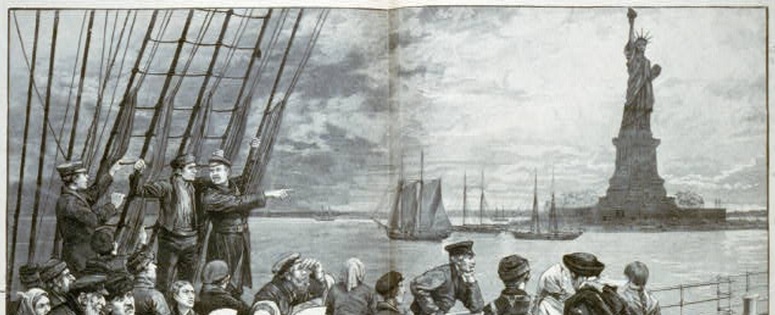
When looking back into your family history, there's nothing more frustrating than not being able to find something you know should be there. Often times, this is a result of one of the fact that the history usually encompasses a lot of change, meaning that a city known today as one moniker may have been three towns all with different names just 100 years ago. For this reason, it is often important to get your mind around possible changes in the last couple of centuries that could have affected the people and places you're researching.
One of the first places that this becomes painfully apparent is with state, county, and city boundaries. Just a couple hundred years ago, there were many states we have today that weren't even recognized yet. Even after they were, the counties and cities/towns within them had to evolve over time, and this meant changes in names and boundaries, sometimes multiple times, in the history of each jurisdiction.
Local jurisdiction is so important to genealogy research because many of the records you'll be looking for are stored in local courthouses. Those that aren't might be located in state archives, and may still be categorized under a different area name than you might think. Once you have an idea of where your ancestors were living, it should be one of your first missions to become intimately familiar with that area's history. Find out which local newspapers existed in the area, including those that are long out of circulation (there are websites dedicated purely to historical newspaper back issues). Next find out what the area used to be known as, if its name changed, or if the boundaries of the area have changed. Find out where the records for the area are held, though you may find that locations near a county line are split between jurisdictions.
Another change to be aware of is change and variations in your own family name. Looking back, some spellings evolve over time, or change when a family immigrates to a new country or language. For example, those with Swedish ancestry might find that Erikson or Erickson used to be spelled "Eriksson." Sometimes you might be following a family name only to have it suddenly disappear; a good strategy here is to look into records of similar names with alternate spellings in the same area, you might just find what you're looking for.
Name changes can, in more rare cases, come about as a result of a career decision (as is often done in show business) or for legal purposes (personal protection, etc.). These aren't extremely common for the average person doing genealogy research, but they might be things to keep in the back of your mind if you hit a brick wall.
If you're really stuck, one of the best places to get information is straight from the source(s). See if your older relatives know or have heard anything. Failing that, looking through local news records might uncover a story with some details that can set you on your way again.
These types of hurdles ultimately represent just a few of the ways you might have to get creative in your search for answers, so don't be afraid to take some guesses and color outside the lines along the way.

Looking up your genealogy can be an incredibly rewarding endeavor. Finding out your roots and your family history provides new context and meaning for your current situation.
Unfortunately, researching your genealogy can also be an extremely time consuming and frustrating task as well. Your search can be a little easier if you learn from some valuable lessons that other people have learned while looking up their family histories.
Here are a few guides to help you on your journey:
If you have questions, comments or simply wish to share something please write us.
